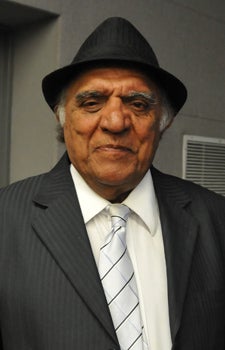Equity and Stability for All
The topic of a recent lecture at USC, “Will There Be Peace in Afghanistan?” is one of timely importance as the United States debates the possibility of troop withdrawal and the end of a long, unpopular war.
The USC student-run organization Global Income Convergence Group (GIC-G) hosted the lecture presented by the organization’s faculty adviser Nake Kamrany, senior lecturer of economics in USC Dornsife.
“It is time for Afghanistan to look deeply within and invest all of their energy into education for youth,” Kamrany said, “with an emphasis on ethical understanding and a passionate commitment to justice and liberty for all.”
Though many Americans don’t realize it, the war in Afghanistan, which began in 2001, represents the longest war in the history of the United States, Kamrany noted.
Kamrany and GIC-G student researchers assessed the economic impact of the war, estimating the cost for each soldier sent to Afghanistan to be $500,000. The cost for all troops thus accounts for more than 60 percent of our federal deficit, he said.
Kamrany said the Afghani people want stability and autonomy within their own country. Afghanistan has been at war for the past 35 years: first with the Soviet Union, then civil wars and finally the U.S. invasion and occupation. He believes that the fighting will finally stop with the removal of foreign troops and drone strikes, and a halting of suicide bombers and explosives from Pakistan.
He argued that peace in a post-occupation Afghanistan is contingent upon three primary conditions. First, a total military withdrawal by foreigners, which would allow for the country to be accountable for itself and develop renewed national pride. Second, there must be a commitment among the different ethnic factions within Afghanistan (which is nearly 100 percent Muslim) to keep peace. Finally, equal rights for women must be implemented and safeguarded.
He also emphasized the potential revenue associated with Afghanistan’s untapped mineral resources, which could help Afghanis rebuild their country —although regulations must be put into place to thwart corruption.
“Afghanistan has clearly demonstrated the strength to survive,” Kamrany said. “The Afghanis need to acknowledge their potential and draw upon their past experiences to create a forward-thinking perspective where hardships do not control the opportunity for growth.”

Nake Kamrany stands with student members of the Global Income Convergence Group’s executive committee. From left, Vincent Viruni, Danielle Ramirez, Kamrany, Jessica Greenhalgh and Dimitri Beshkov. Photo by Laura Paisley.
The GIC-G group’s efforts extend far beyond holding lectures.
Established in Fall 2010, GIC-G is a student research think tank led by Kamrany that brings together undergraduates from throughout campus passionate about conducting research on global issues through the lens of economic analysis.
This analysis is predicated on the theory of “economic convergence,” which posits that per capita incomes in poorer economies will tend to grow at faster rates than richer economies. Consequently, all economies will eventually converge in terms of per capita income.
Their research aims for universal prosperity, economic freedom, equity and stability for all nations.
Kamrany has encouraged and collaborated on student articles based on global economic research. To date, GIC-G members have yielded 17 coauthored publications.
Jessica Greenhalgh, a senior economics major and GIC-G president, has researched and coauthored three publications with Kamrany for The Huffington Post in 2012. Her research focused on healthcare in the U.S. and offered specific suggestions for cost-effective implementation and program reform.
“It was a great project to get my hands on,” Greenhalgh said. “In classes, you’re just doing an essay for the professor, but by doing this research it allowed me to actually write something that a general audience might read. It was great to extend the discussion through the comments people added to the online articles.”

Kamrany has collaborated closely with his undergraduate economics students in coauthored articles that have been published internationally. Photo by Laura Paisley.
Danielle Ramirez, who graduated from USC Dornsife in Summer 2012 with a progressive degree in economics, coauthored research on the economy of Colombia published in The Huffington Post and two Colombian newspapers. It started as a class project for Kamrany to provide an economic analysis predicting when the country’s per capita Gross Domestic Product (GDP) would converge with that of the U.S. Kamrany was so impressed with her work that he encouraged Ramirez to get it published.
Six months after Ramirez’s graduation, Routledge, a publisher of academic books and journals located in the United Kingdom, contacted Kamrany and Ramirez about their research and enlisted them to write a chapter for a new edition of Routledge’s economics handbook, Emerging Economies.
“I was able to list this accomplishment on my resume, and it helped get me a few job offers,” said Ramirez. “It just became this snowball effect where it started off as a class project and now here we are writing economics text book chapters.”